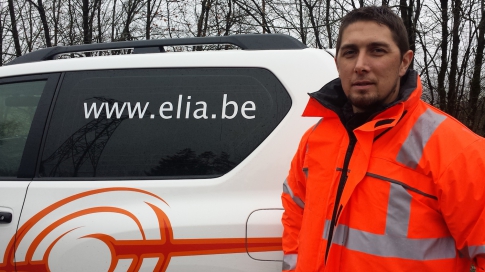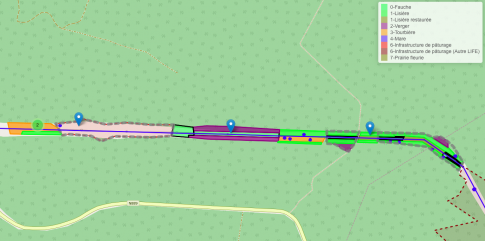News
2016-02-22
Preparing the After-LIFE with Elia
The shift to an alternative vegetation management approach involves many internal changes for the Transmission System Operator. In 2015 already, Elia appointed two members of its network maintenance department as "responsible for the After-LIFE management". The LIFE project team has developed a training program to enable them to manage actions on site well beyond the end of the project.

Two major tools for the After-LIFE: management plans and training
At the end of the project itself, Elia in Belgium and RTE in France will be responsible for the maintenance of actions implemented in the framework of the LIFE Elia-RTE. But how to ensure a smooth shift ? Two major tools have been developed: management plans and training.
Management plans
These management plans must contain all information necessary for long-term management of the actions undertaken during the LIFE project, such as the location of the selective felling to be made in restored edges, the monitoring of conventions involving farmers or the control of vegetation in restored natural habitats.
The management plans for each site of the LIFE project, are based on mapping, and on all information related to the sites : identification number of high-voltage lines, pylons numbers, owners, managers, type of actions undertaken, work to be done, agreements and authorizations ...
The beta version of these plans is being improved with the assistance of Elia staff ! The team aims to deliver a pragmatic and relevant product for the Network maintenance Department.

Training
A training cycle containing 5 modules has been developed by the LIFE team. It covers many topics including:
- trees and shrubs species recognition, and an introduction to forest management
- corridors management by planting and restoring stepped edges: implementation and long-term management
- corridors management in open agricultural areas : experiences and monitoring of grazing and mowing
- restoration and management of natural habitats
- the project's progress and the return of experiences encountered during visits by the team in other European countries.
These modules were given partly indoors and partly on site in order to bring the practice to theory. It was also a good way to involve Elia in real conditions that will occur in the After-LIFE.

A similar process will be initiated at RTE in France by the end of the LIFE project.

